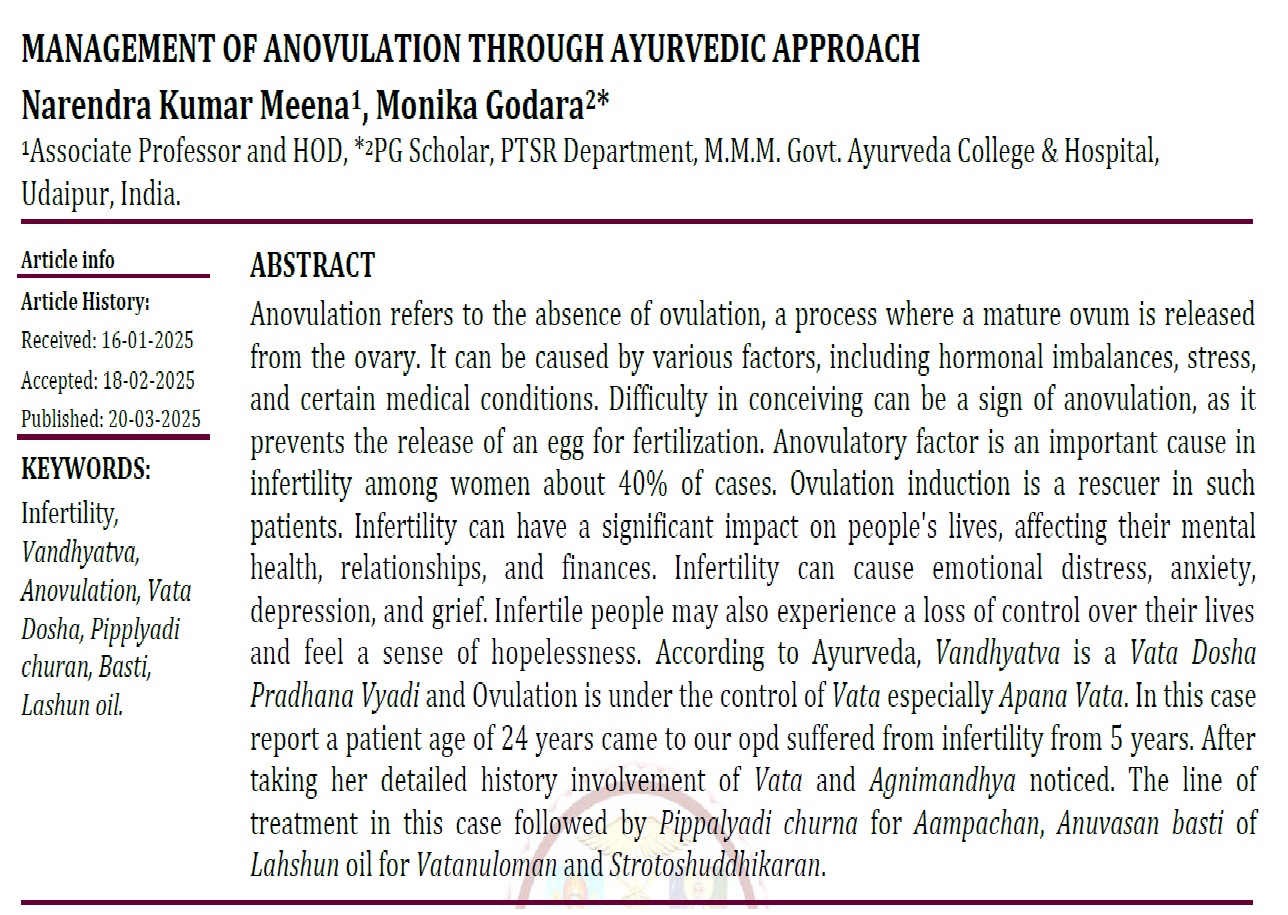Management of Anovulation Through Ayurvedic Approach
DOI:
https://doi.org/10.47070/ayushdhara.v12i1.1960Keywords:
Infertility, Vandhyatva, Anovulation, Vata Dosha, Pipplyadi churan, Basti, Lashun oilAbstract
Anovulation refers to the absence of ovulation, a process where a mature ovum is released from the ovary. It can be caused by various factors, including hormonal imbalances, stress, and certain medical conditions. Difficulty in conceiving can be a sign of anovulation, as it prevents the release of an egg for fertilization. Anovulatory factor is an important cause in infertility among women about 40% of cases. Ovulation induction is a rescuer in such patients. Infertility can have a significant impact on people's lives, affecting their mental health, relationships, and finances. Infertility can cause emotional distress, anxiety, depression, and grief. Infertile people may also experience a loss of control over their lives and feel a sense of hopelessness. According to Ayurveda, Vandhyatva is a Vata Dosha Pradhana Vyadi and Ovulation is under the control of Vata especially Apana Vata. In this case report a patient age of 24 years came to our opd suffered from infertility from 5 years. After taking her detailed history involvement of Vata and Agnimandhya noticed. The line of treatment in this case followed by Pippalyadi churna for Aampachan, Anuvasan basti of Lahshun oil for Vatanuloman and Strotoshuddhikaran.
Downloads

Downloads
Published
Issue
Section
License
Copyright (c) 2025 AYUSHDHARA

This work is licensed under a Creative Commons Attribution-NonCommercial-ShareAlike 4.0 International License.


